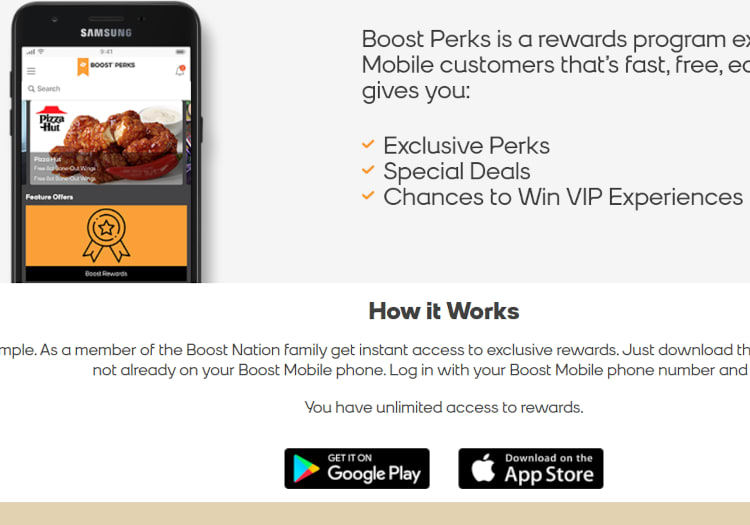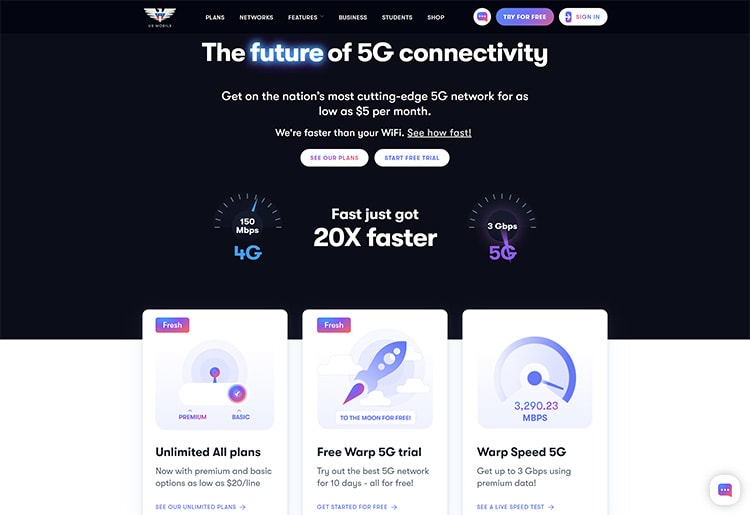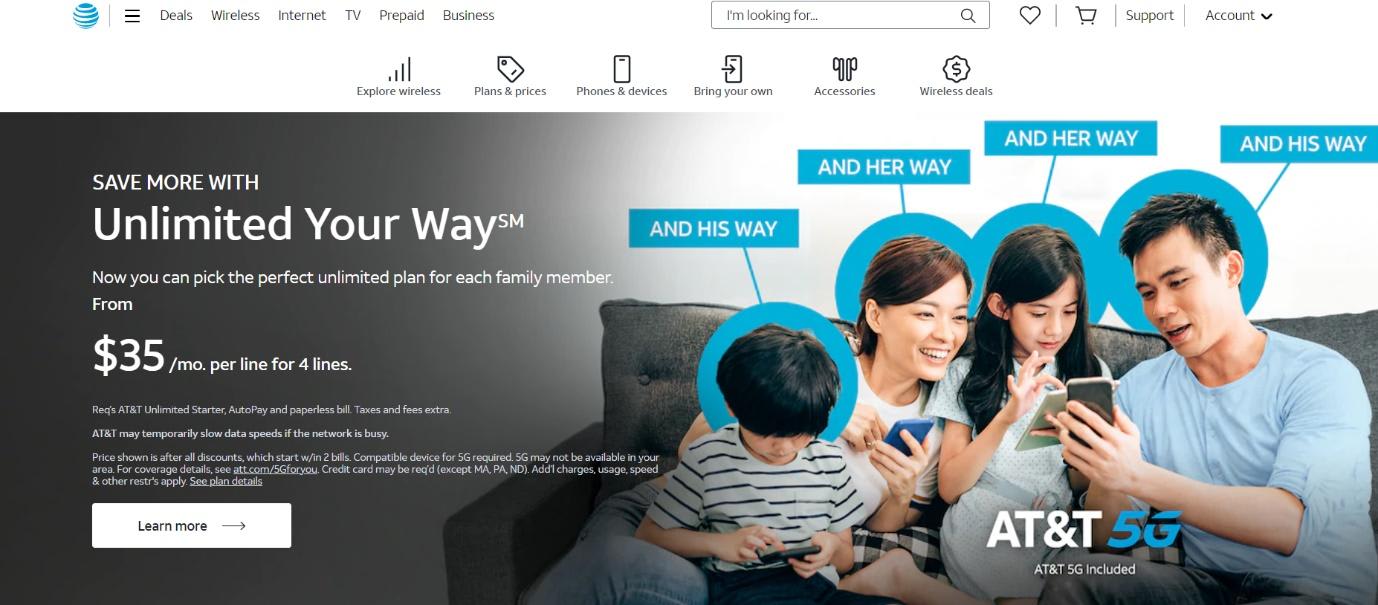How To Choose a Cell Phone Plan
When comparing providers, focus on the cost that applies to the number of people you want on your account because prices may vary drastically. While the postpaid providers—like Verizon, Xfinity, and AT&T—often cost more for single users, they rack up multi-line discounts quickly and can be cheaper when purchased as a family plan.
Perhaps you're one of the 63% of people who would consider switching mobile carriers for deals on streaming services bundled with cell service. If you're going to use the plan for streaming, movies, or gaming, look for ones with unlimited high-speed data at a decent price, like Visible+.
Additionally, if you frequently work outside the home or office, look for subscriptions with high hotspot allowances, such as higher-tier PureTalk and Cricket Wireless memberships.
What Types of Cell Phone Plans Are There?
Another important thing to consider when comparing providers is the types of cell phone plans they offer.
Unlimited: The most common type of plan offered by cell phone companies. It includes unlimited talking, texting, and data. However, many companies limit the amount for 4G or 5G connection, which they can also slow down to 2G.
Talk and text only: This plan’s useful if you want to use your phone the traditional way and don’t need internet access or different apps.
Data only: These subscriptions are tailored for devices such as tablets and smart and often don’t include talking and texting.
Pay-as-you-go: With these plans, you start by buying a certain amount of credit or minutes from your service provider. Let's say you buy $20 worth of credit. Then, as you make calls, send texts, or use data, the cost of each action is deducted from your credit balance. It's like a digital piggy bank that keeps track of your usage.
How Much Do Cell Phone Plans Cost?
A cell phone plan typically starts from around $5/month for a single line, depending on the provider, type of subscription, and features you select. In most cases, you can get a discount if you add more people to your account. While almost every membership includes unlimited talking and texting, the data and hotspot usage racks up most of the extra costs.
The cheapest unlimited subscriptions with infinite talking, texting, and data start from around $30/month for a single line, with the average price being closer to $50/month. Using a multi-line plan with pooled data, you can also reduce the cost even further.
How Much Data Do You Need?
Determining the data you need depends on factors such as the number of people on your account and their internet usage habits. Consider their activities while disconnected from WiFi, such as streaming services, video conferencing, and online gaming, which can consume a significant portion of your monthly allowance. On a postpaid plan, exceeding the limit may result in additional charges or network throttling. If your family primarily relies on WiFi, a limited or pooled data subscription can help save costs. Alternatively, an unlimited plan might be more suitable if extensive data usage is anticipated.
Should You Buy Postpaid, Prepaid, or Resold Service?
Postpaid Plans - Pay Your Bill at the End of the Month
Postpaid plans require you to sign a contract for an extended period, typically two years, paying a predetermined price at the end of each month. They’re offered mainly by large carriers who own their networks—such as T-Mobile, Verizon, and AT&T.
While they’re typically more expensive than prepaid, they often include more substantial multi-line discounts, perks, and add-ons that protect you against deprioritization. This makes them a good fit for families who want to share an account and those who need fast data and don’t mind paying a little more for their subscription.
Prepaid Plans - Pay for Your Service in Advance
With prepaid plans, you pay for your service before using all the benefits it has to offer. They're usually offered by providers like Xfinity that use a larger carrier's network and are cheaper than the postpaid alternative. In addition, they also have features like unlimited hotspot usage and different subscription perks.
However, since these providers use a larger carrier's network, their prepaid plans are often the first to get deprioritized when the grid becomes busy. Because most of them don't offer multi-line discounts, they're best for single-line users or those who don't always need fast data.
Resold Plans - Someone Else Buys the Service and Resells It to You
Resold plans are provided by users that decided they don’t want to continue with a contract. If they’re forced to sell because of moving to another country or losing their job, you’ll be able to get them cheaper than by subscribing directly to a carrier. This can also be the case if the prices changed since the contract started, or the membership included a promotion
How to Save Money on Your Cell Phone Plan
No matter which type of cell phone plan you choose, there are ways to save money on your monthly bill.
Here are a few tips:
Review your plan and usage often: This will help you identify areas where you can reduce it or downgrade to a cheaper plan.
Switch to a cheaper provider: Many carriers offer incentives to switch to their network, such as a free month of service or a credit on your first bill.
Use discounts: Some providers offer discounts for certain professions like military personnel and teachers.
WiFi: To avoid spending a lot of data, stay connected to a WiFi connection whenever possible.
Unnecessary features: Disable features you don't use, such as visual voicemail and cloud storage, since these can unnecessarily increase your monthly fees.
Stay on top of monthly payments: Always pay your bills on time to avoid late fees.
MVNOS and Main Carriers: What's the Difference?
The main difference between MVNOs (Mobile Virtual Network Operators) and main carriers lies in their infrastructure ownership. Main carriers, like Verizon or AT&T, own and operate their own physical network infrastructure. They have extensive coverage but tend to offer higher-priced plans. On the other hand, MVNOs, such as Boost Mobile or Mint Mobile, do not own network infrastructure. They lease network access from main carriers and offer more affordable plans as a result. While MVNOs may have limitations like slower data speeds during congestion, they provide budget-friendly alternatives to main carriers.
Unleash the Power of Connectivity
The average American checks their cell phone 144 times daily. So, your choice of provider is important, and each plan offers a unique combination of coverage and features. By comparing options and considering your specific communication needs, you can ensure that you stay connected without breaking the bank. Make an informed decision and embark on a seamless digital journey with the top 10 best online cell phone plans available.
A cell phone plan provider offers plans and services while the network enables the actual communication. Plan providers offer mobile phone plans and manage billing and customer support. They are responsible for supplying the cellular service. Networks, on the other hand, are the technical infrastructure that enables wireless communication. It consists of cell towers, base stations, and equipment that transmit and receive signals. When you choose a cell phone plan, you are subscribing to a provider's services, and they utilize the underlying cell phone network to deliver those services to your device.
No, you don’t have to buy a device directly from your cell phone plan provider. However, many of them offer financing or discounts when bundled with their plans. Explore various options from both the provider and third-party retailers to find the best deal that suits your needs and budget.
For data-intensive activities like HD streaming and mobile gaming, opt for unlimited data plans offered by reputable providers like AT&T and Verizon.
To switch cell phone plans, follow these straightforward steps. First, conduct research to compare plans offered by different providers and find one that suits your needs. Next, check if you have any contractual obligations or outstanding payments with your current provider. Once you're ready to switch, contact the new provider and inform them about your decision, providing the necessary details they require. If you want to keep your existing phone number, let the new provider know so they can assist with the porting process. Finally, once your new plan is approved, activate it using the provider’s instructions and start using your new cell phone services.
Prepaid plans require upfront payment for services before use, allowing better control over expenses and no contractual obligations. Postpaid plans involve paying for services after they are used, typically on a monthly basis. Postpaid plans often require a credit check and involve a contract. Prepaid plans offer flexibility and no surprises, while postpaid plans provide convenience with monthly billing and potential device financing options.
US Mobile, AT&T, and Xfinity Mobile include unlimited, affordable, and pooled data for multi-line accounts. By adding four to five lines, you’ll get a plan where each user gets a 50% discount. These phone carriers also offer additional family-based perks like different streaming subscriptions.
With Visible, customers can enjoy unlimited data, talk time, and text messaging on Verizon's robust 5G network. Their plans include additional features like mobile hotspot usage and unlimited international calling. Visible stands out for its affordable pricing, transparent policies, and simplicity of service, making it a popular choice for those seeking reliable unlimited data plans.
The best membership for seniors is Mint Mobile’s “55+” prepaid plan, which includes unlimited talking, texting, and 5GB for $15/month. For those who don’t use a lot of data, US Mobile’s “Talk and Text” plan for $6/month is the best option.
The cheapest cell phone plans are US Mobile’s ”Talk and Text” at $6/month, Tello’s 500MB data membership at $5/month, and Mint Mobile’s 5GB at $15/month.



.20210331083136.png)


.20210413135735.png)


.20210331101053.png)
.20210331103031.png)



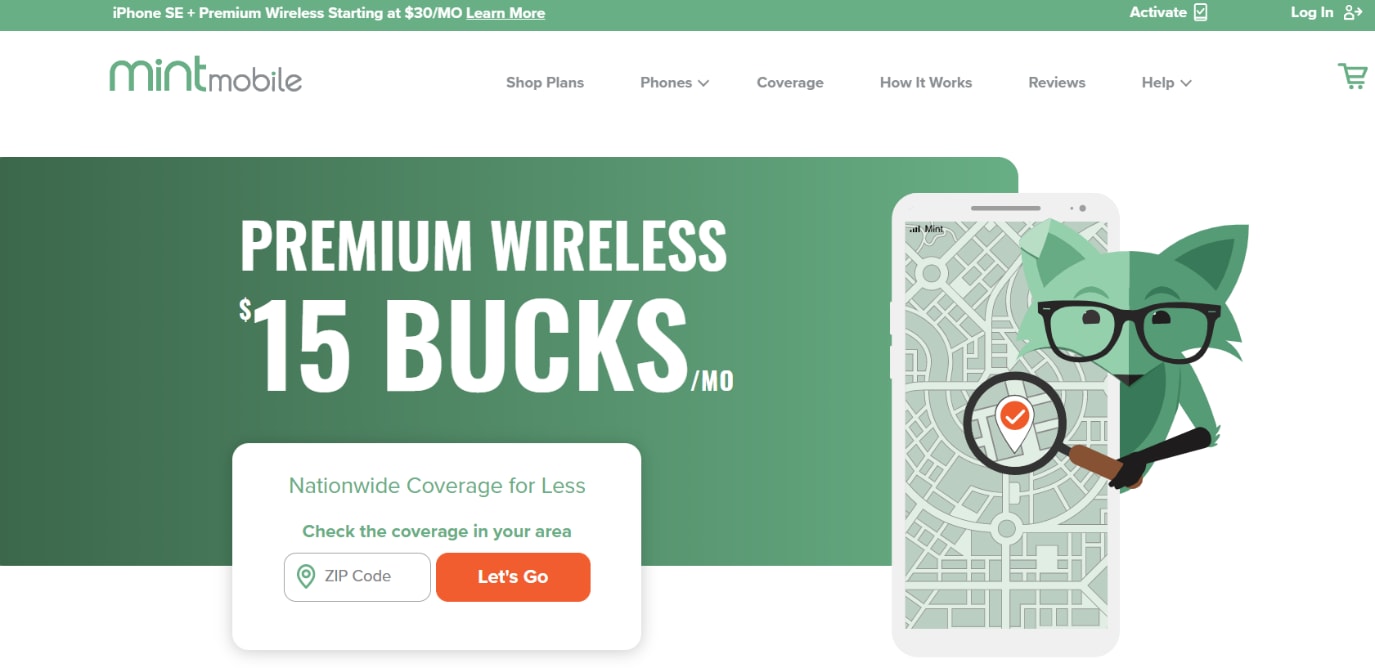

.20210331083136.png)
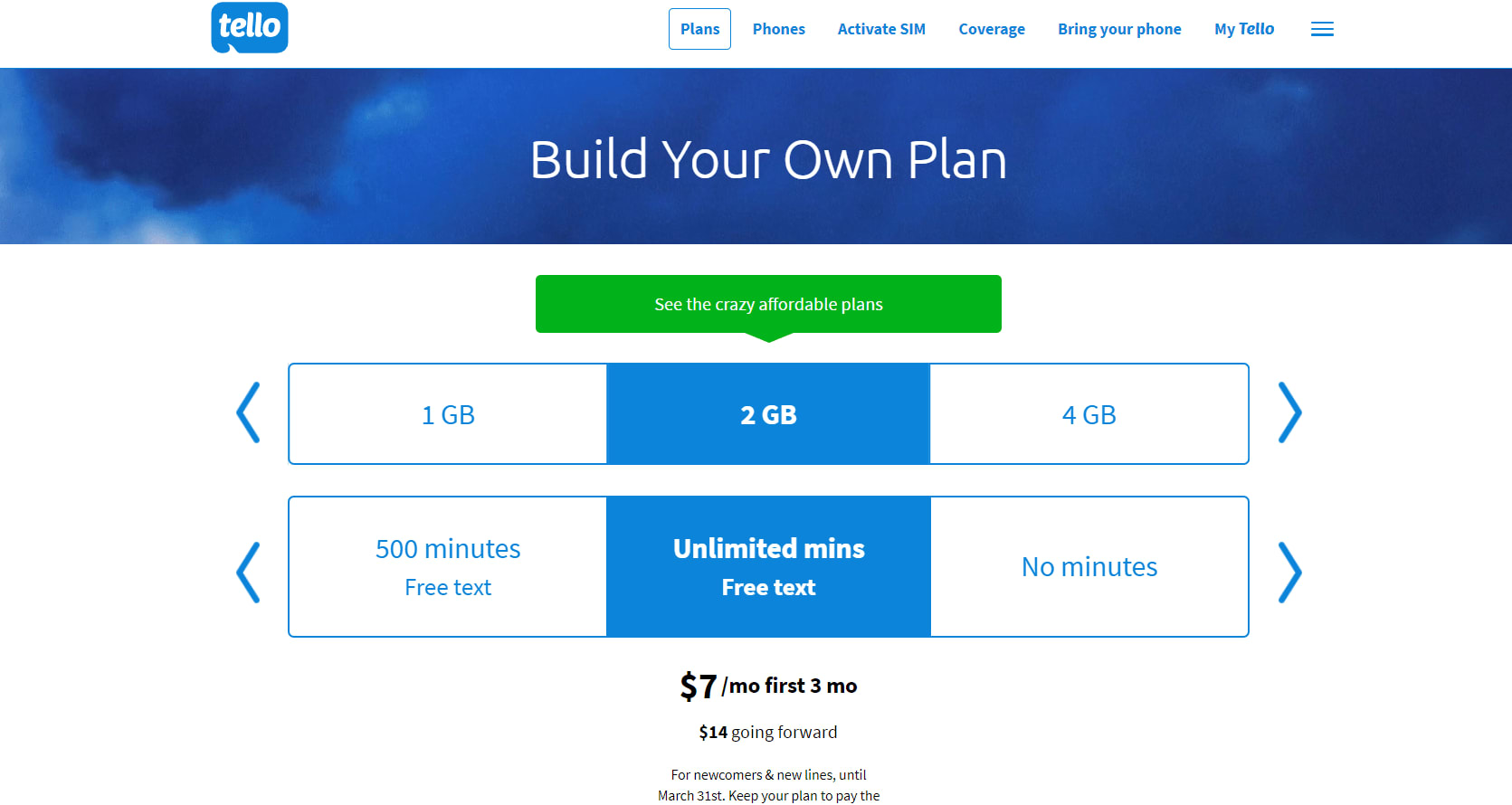

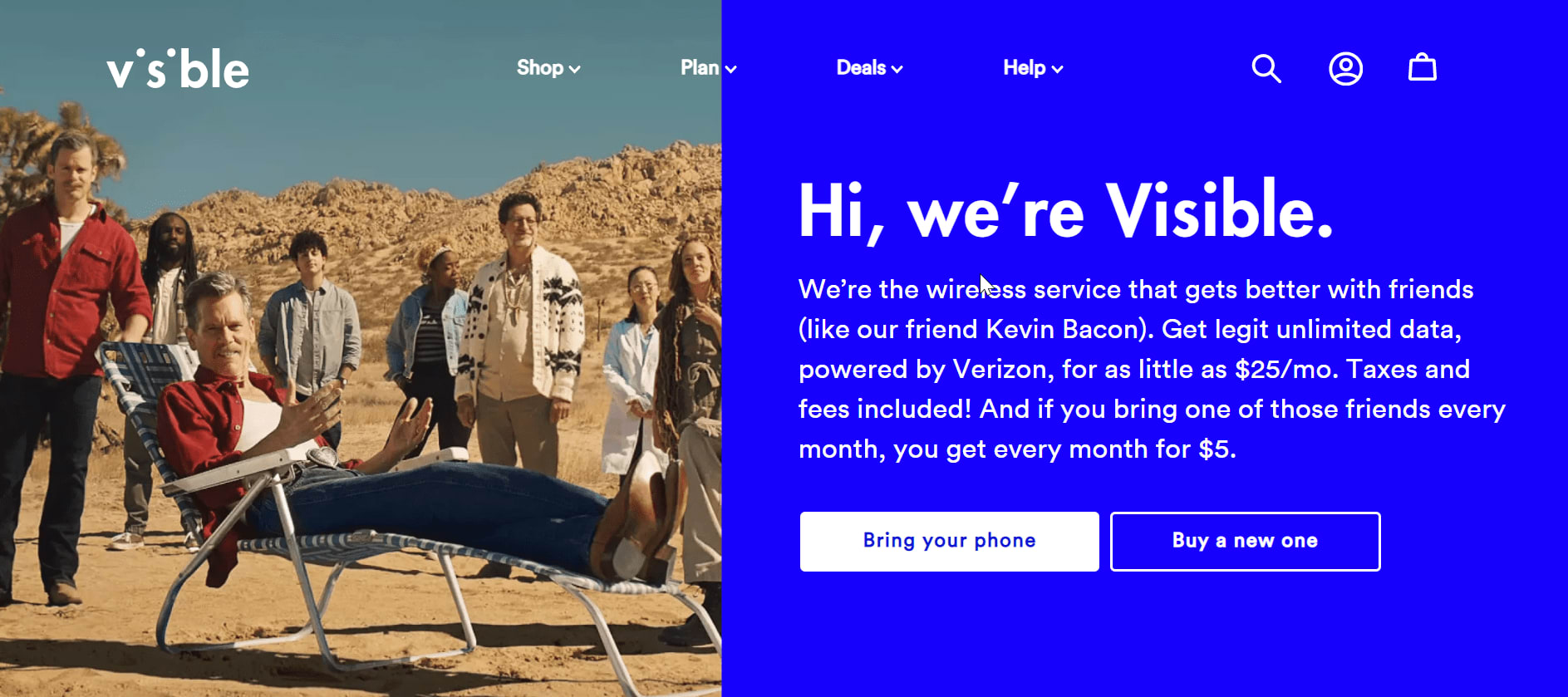
.20210413135735.png)
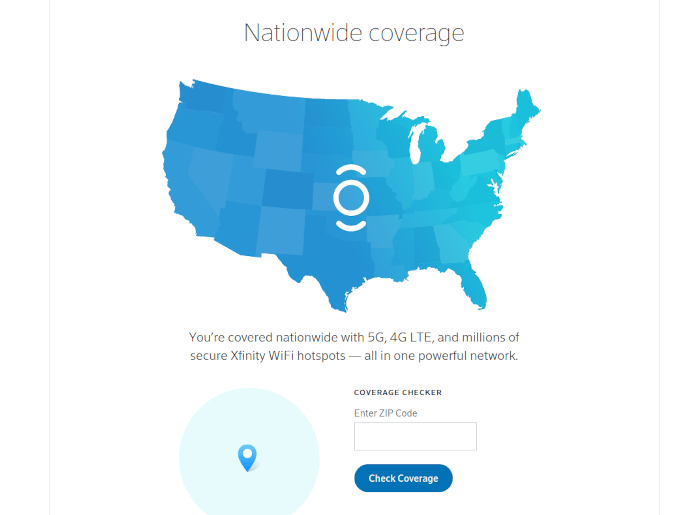

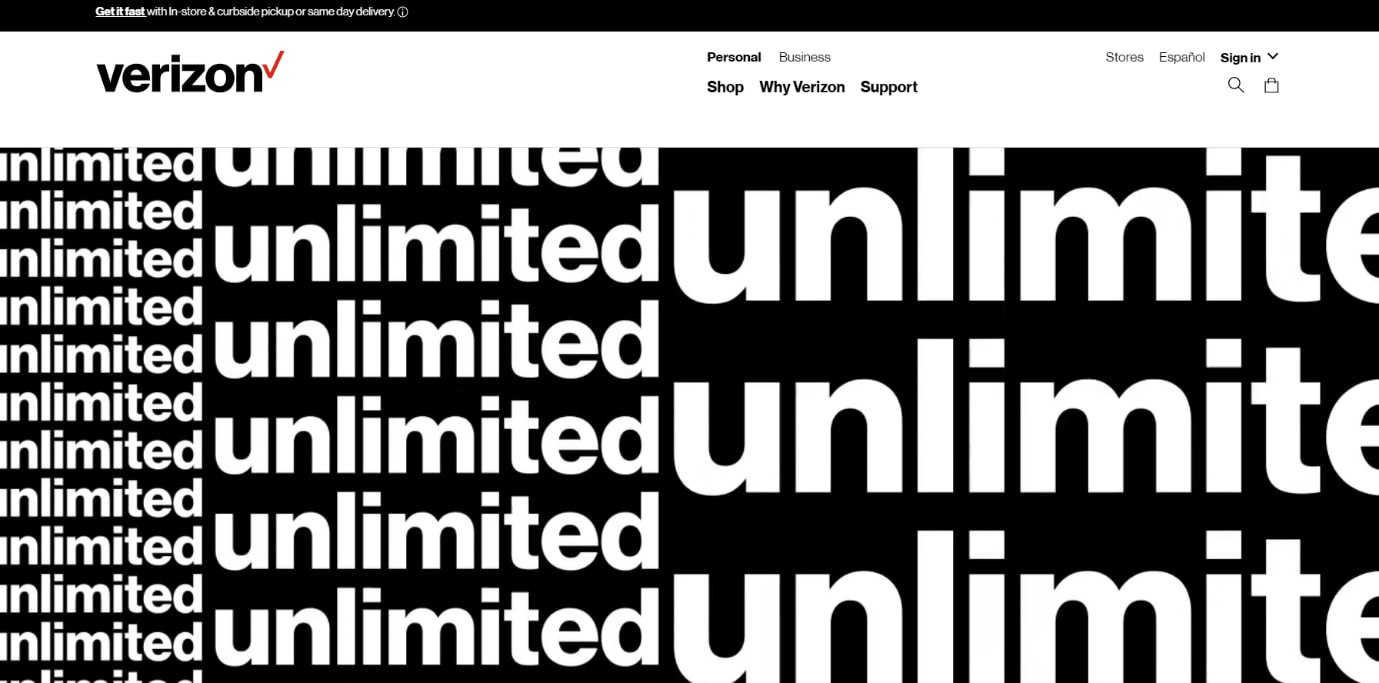

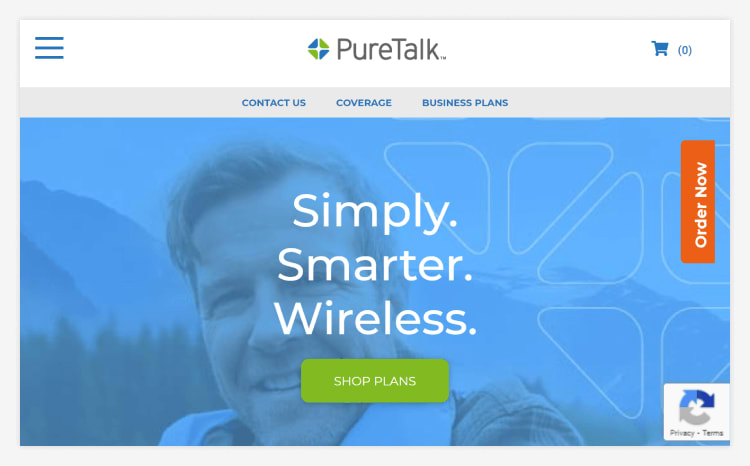
.20210331101053.png)
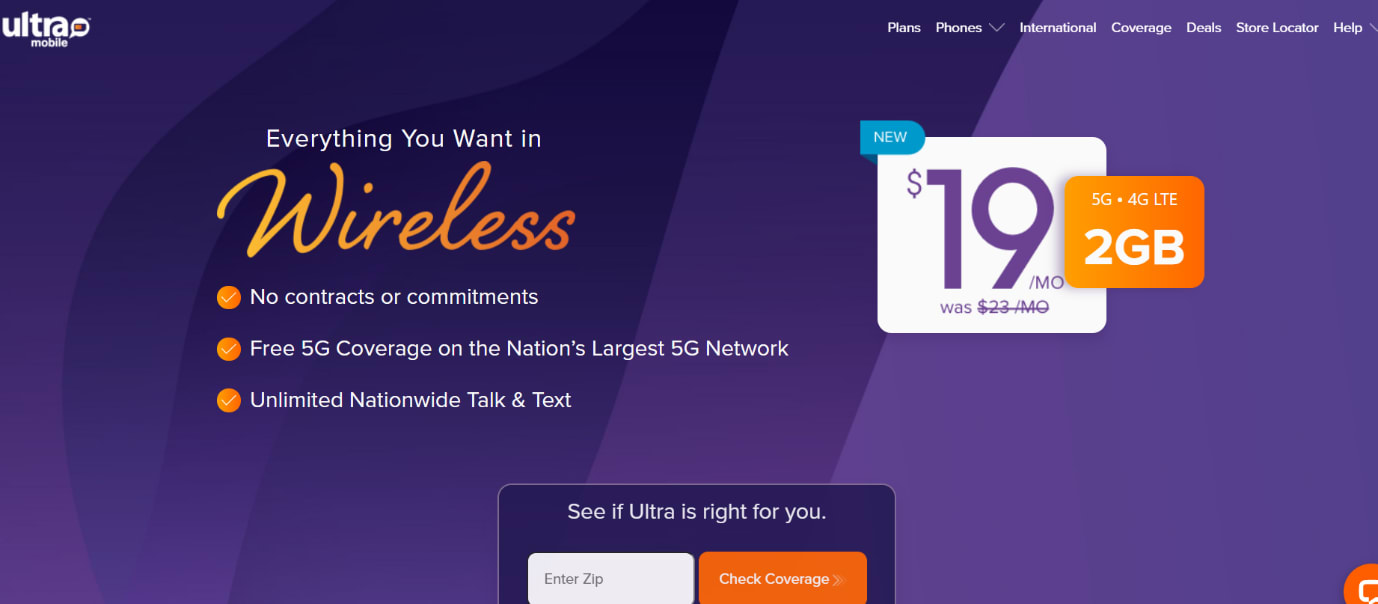
.20210331103031.png)
